Romania's Fields of Dreams / Rumunska polja snova
- Анђела Петровски
- Jun 9, 2025
- 4 min read
Life Lived Slowly, in Romania’s Maramureş
Romania is in the news right now, for all the wrong reasons. Political disputes, Andrew Tate; before that, it was Ceauşescu and orphanages. You’d be forgiven for thinking that Romania is a land of scoundrels and ne’er-do-wells. There is of course an alternative reality, a Romania which has seen minimal change in the last century. Here in the Maramureş — a region close to the Ukrainian border in the north of the country — lies fertile land on which people work, sometimes still with rudimentary tools, and increasingly with some minimal mechanisation.
The population here is ageing. Especially since joining the EU in 2007, many younger Romanians have left the country to seek their fortunes — this leaves a bittersweet taste in the mouth. Visiting Maramureş is like stepping back in time to a place where traditional values still reside, and you are welcomed as an old friend with warm greetings and good-natured hospitality. Speak to these elders, though, and you can feel the weight of years spent alone. In farming life there is no option but to get up and work, and it’s not uncommon to see octogenarians harvesting fruit, raking hay or tending to their animals. Gnarled knuckles and bent backs tell their own stories.
The sense of community is strong, despite or because of the exodus to far-off cities and countries. Neighbours pop around for chats uninvited or come to help with the chores that fall in line with the seasons. There are some who prefer, still, to harvest hay with pitchforks and horses — not because they are unaware of what tractors can do, but because for them harvest is a time to be together, to discuss village matters and to put the world to rights.
The houses are often a photographer’s delight. Brightly patterned with tiles on the outside, the interiors offer the traditional soba enamelled and wood-fired stoves. Many dwellings have a kind of parlour where visitors are received, filled with decades-worth of embroidered pillows, hand-printed wallpaper and saucepans.
Don’t be fooled by this bucolic appearance. The villagers here have their disputes, and there is pain caused by poverty and loneliness. Stories are recounted that bring tears to the eyes — of deceased children, of unbearable conditions. Some villagers tell you of the big events in history, such as when the Communists came to power and villagers were arrested.The elderly here are unfazed by life; they’ve seen it all and get on with it, aided by a constitutional horinka from time to time and a faith in God.
This is a Romania that is far from the Western perception. It’s a place where people stick together through good times and bad, where life is shared, celebrated and commiserated. We witnessed a one-year celebration of a deceased member of the community at the ancient Orthodox church in Glod: every person is considered important, even after they are gone.
A visit here forces you to reflect on yourself, on how you live. Nobody needs to make some sort of Manichaean and absolute choice between the material wealth of the West and the community of the majority world — but, if you listen carefully, there are lessons to be learned here in Maramureş, for all of us.
PHOTO & TEXT : JENNIE BLYTHE
Život koji teče polako, u Maramurešu, Rumunija
Rumunija je ovih dana u vestima – i to iz pogrešnih razloga. Politički sukobi, Endru Tejt; pre toga Čaušesku i sirotišta. Mogli biste pomisliti da je Rumunija zemlja prevaranata i propalica.Naravno, postoji i drugačija stvarnost – Rumunija koja se malo promenila tokom poslednjeg veka. U Maramurešu – oblasti blizu ukrajinske granice na severu zemlje – leže plodna polja na kojima ljudi rade, ponekad još uvek koristeći jednostavne alate, a sve češće uz minimalnu mehanizaciju.
Stanovništvo ovde stari. Posebno od kada je Rumunija 2007. ušla u EU, mnogi mladi su otišli iz zemlje u potrazi za boljim životom – a to ostavlja gorak ukus u ustima. Poseta Maramurešu je kao povratak u prošlost, u mesto gde tradicionalne vrednosti još uvek postoje, a dočekuju vas kao starog prijatelja – srdačno i gostoljubivo.
Ali ako porazgovarate sa starijima, osetićete težinu godina provedenih u samoći. Na selu nema odmora – mora se ustati i raditi – i nije retkost videti osamdesetogodišnjake kako beru voće, skupljaju seno ili brinu o životinjama. Zgrčeni prsti i pogrbljena leđa govore svoju priču.
Osećaj zajedništva je snažan – možda baš zbog toga što su mnogi otišli u udaljene gradove i zemlje. Komšije svraćaju bez najave na razgovor ili pomažu u poslovima koji dolaze s godišnjim dobima. Neki i dalje više vole da kose seno vilama i konjima – ne zato što ne znaju šta traktor može, već zato što je za njih žetva vreme za druženje, razgovor o selu i popravljanje sveta.
Kuće su često pravo blago za fotografe. Šarene spolja, prekrivene pločicama, a iznutra greju tradicionalne emajlirane sobe na drva. U mnogim kućama postoji neka vrsta salona za goste, ispunjena decenijama starim vezenim jastucima, tapetama sa ručnim štampanjem i starim šerpama.
Nemojte da vas zavara ovaj idilični izgled. Meštani imaju svoje sukobe, a tu su i bol i siromaštvo, i samoća. Priče koje se prepričavaju znaju da rasplaču – o preminuloj deci, o nepodnošljivim uslovima života. Neki meštani pričaju i o velikim istorijskim događajima, kada su komunisti došli na vlast i kada su ljudi iz sela hapšeni.Stariji ovde ne prave dramu oko života – sve su već videli i samo nastavljaju dalje, uz povremenu čašicu domaće horinke i veru u Boga.
Ovo je Rumunija daleko od one koju poznaje Zapad. Mesto gde se ljudi drže zajedno, u dobru i u zlu; gde se život deli, slavi i oplakuje. Prisustvovali smo obeležavanju godinu dana od smrti jednog člana zajednice u drevnoj pravoslavnoj crkvi u Glodu – ovde je svaka osoba važna, čak i kad više nije među živima.
Poseta ovom kraju tera vas da se zapitate o sebi – kako živite. Ne morate birati između materijalnog bogatstva Zapada i zajedništva većeg dela sveta – ali, ako pažljivo slušate, u Maramurešu zaista ima mnogo toga da se nauči.
PHOTO & TEXT : JENNIE BLYTHE


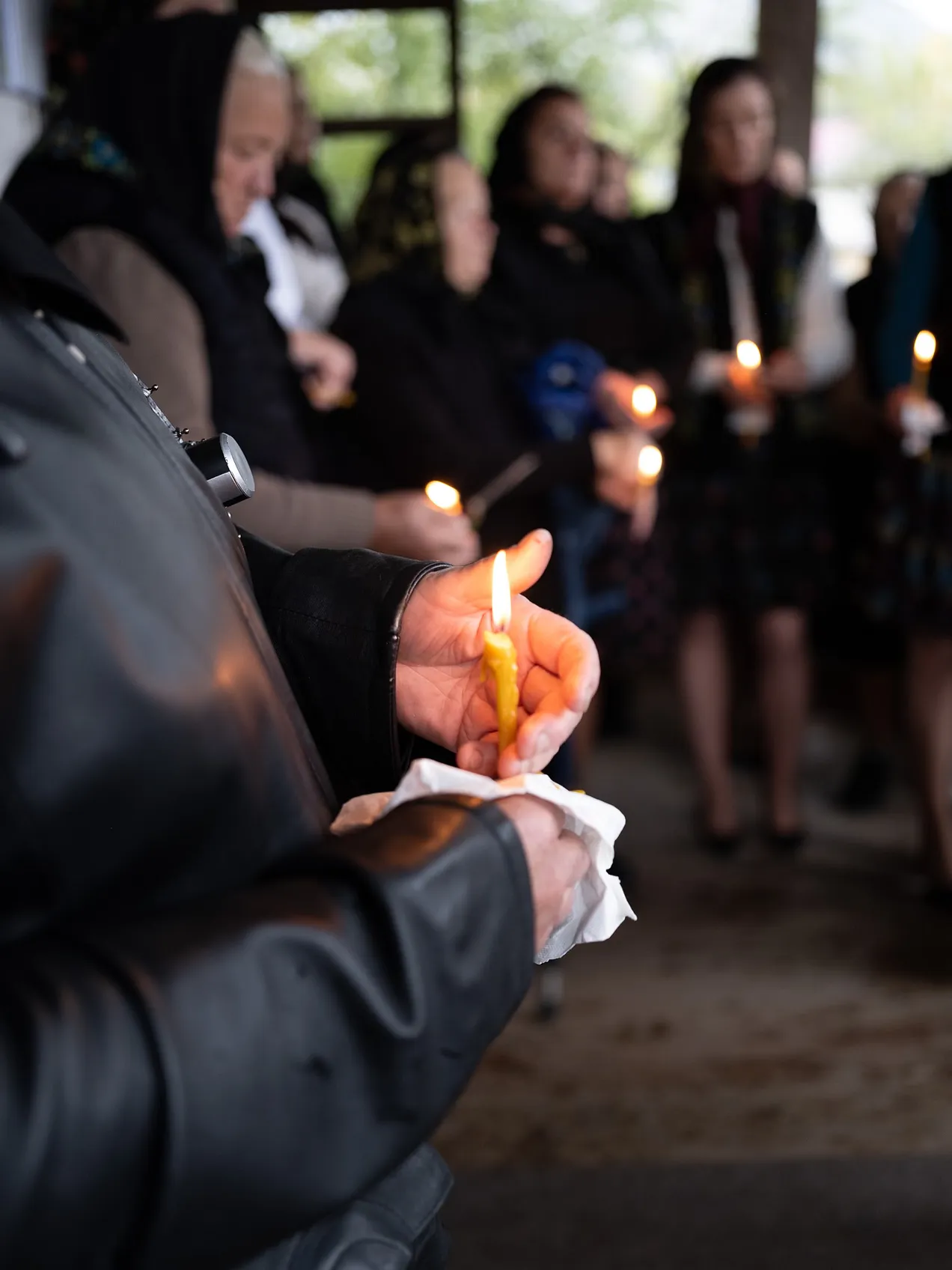
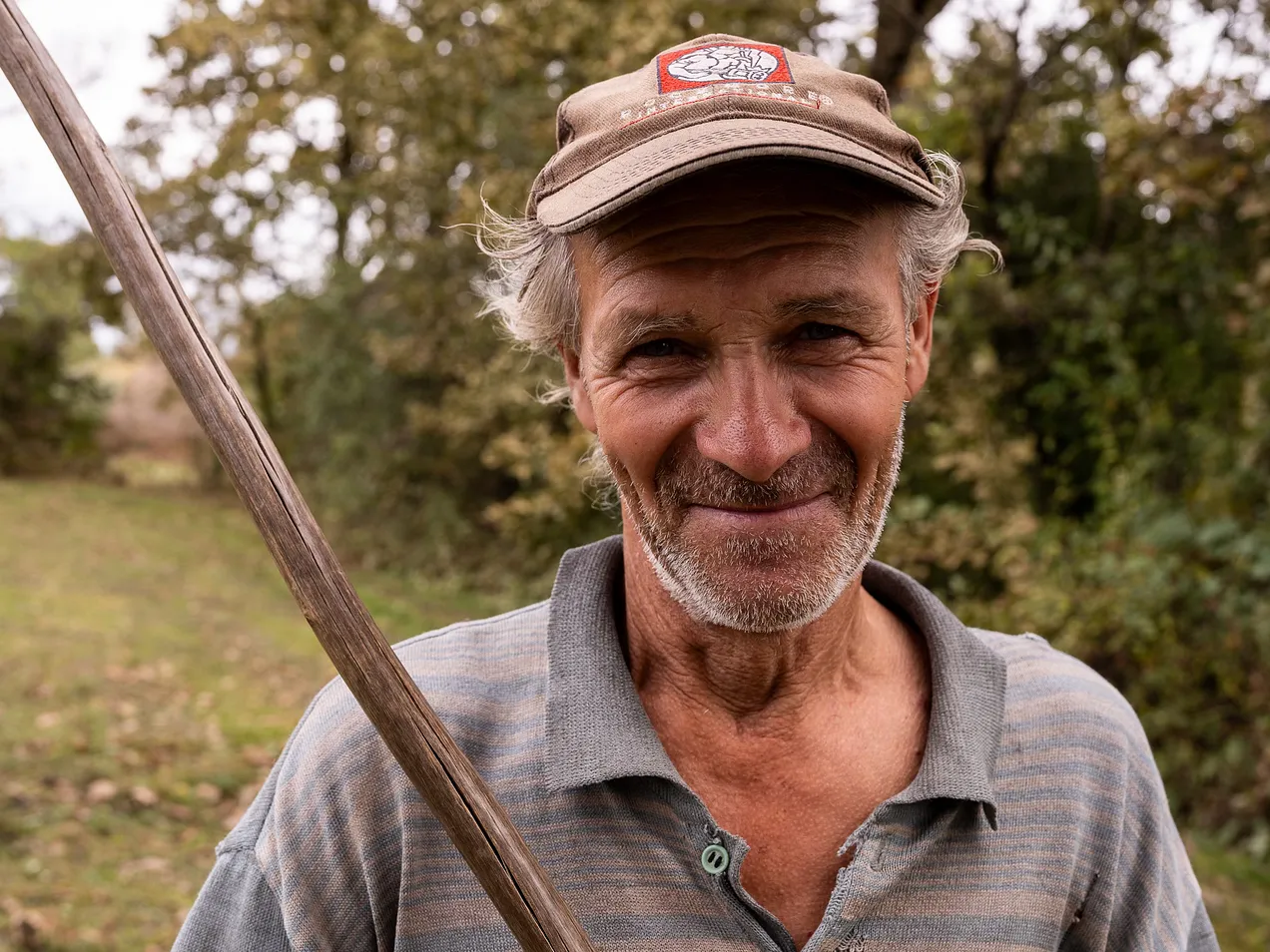

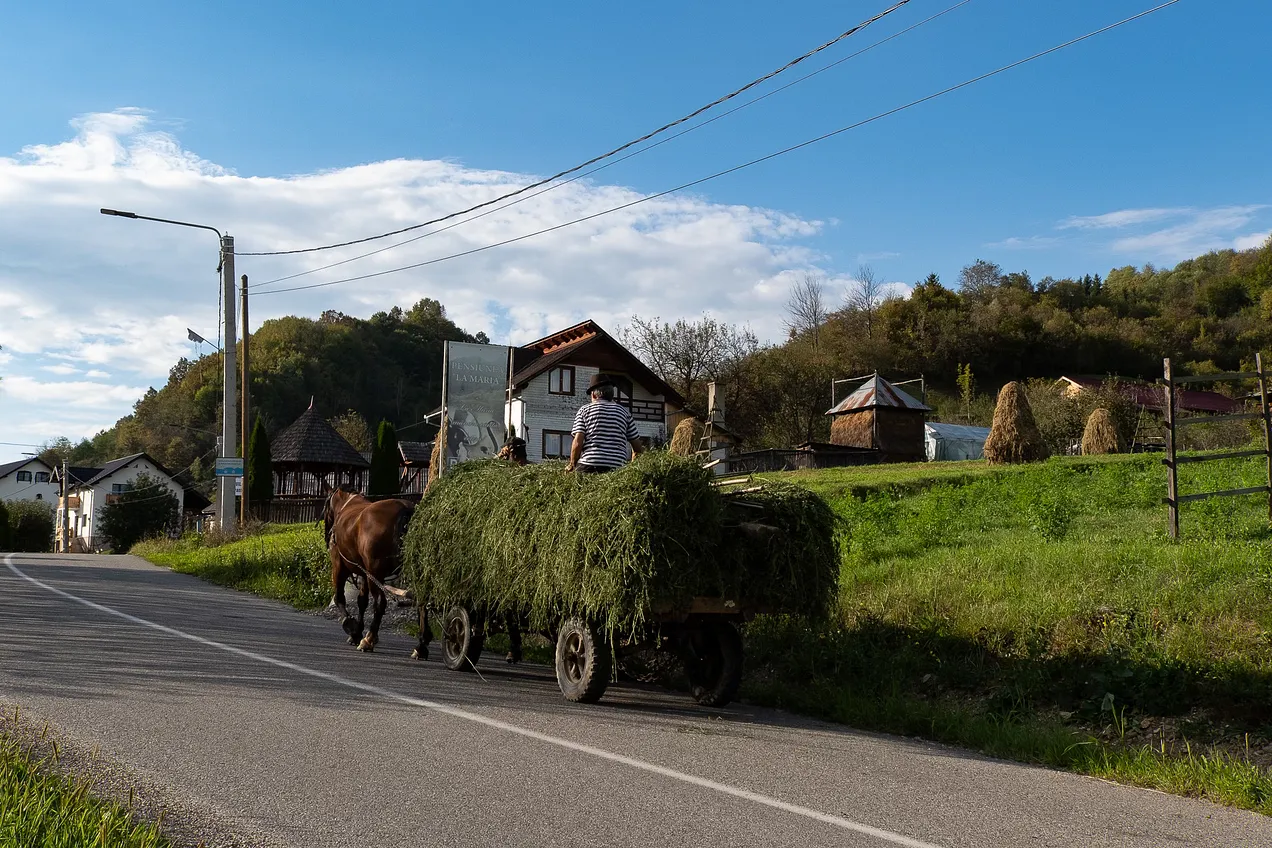
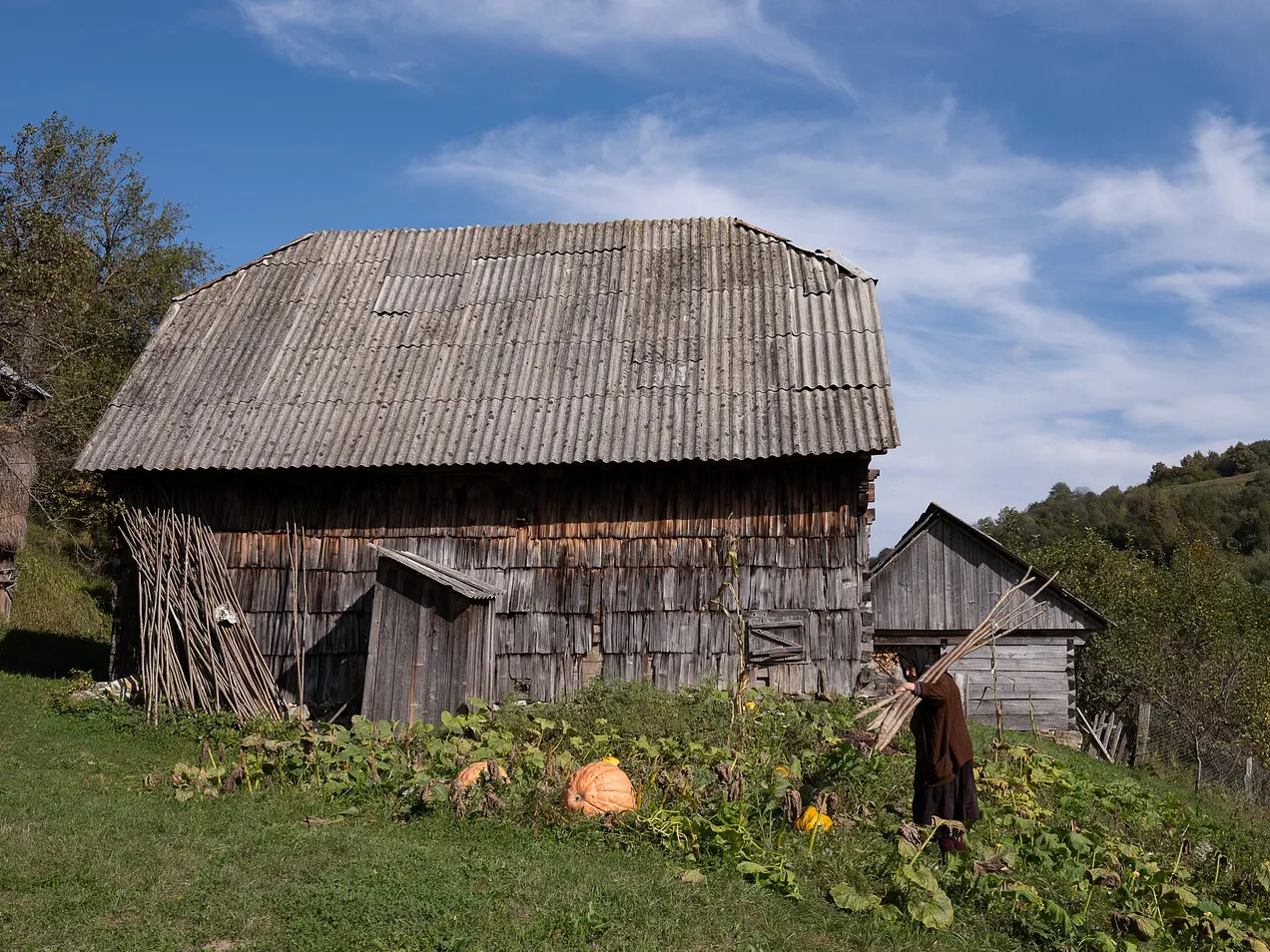
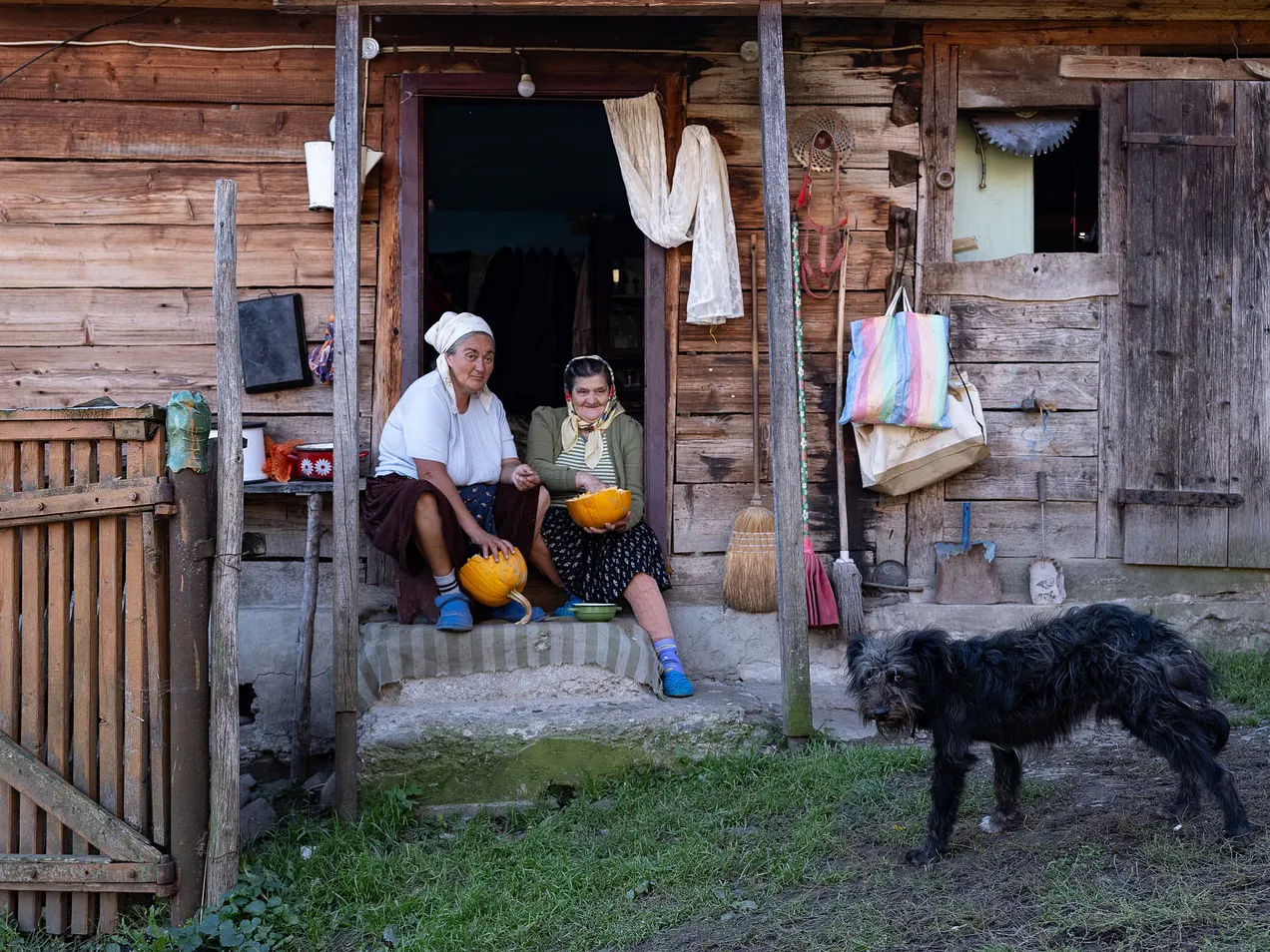
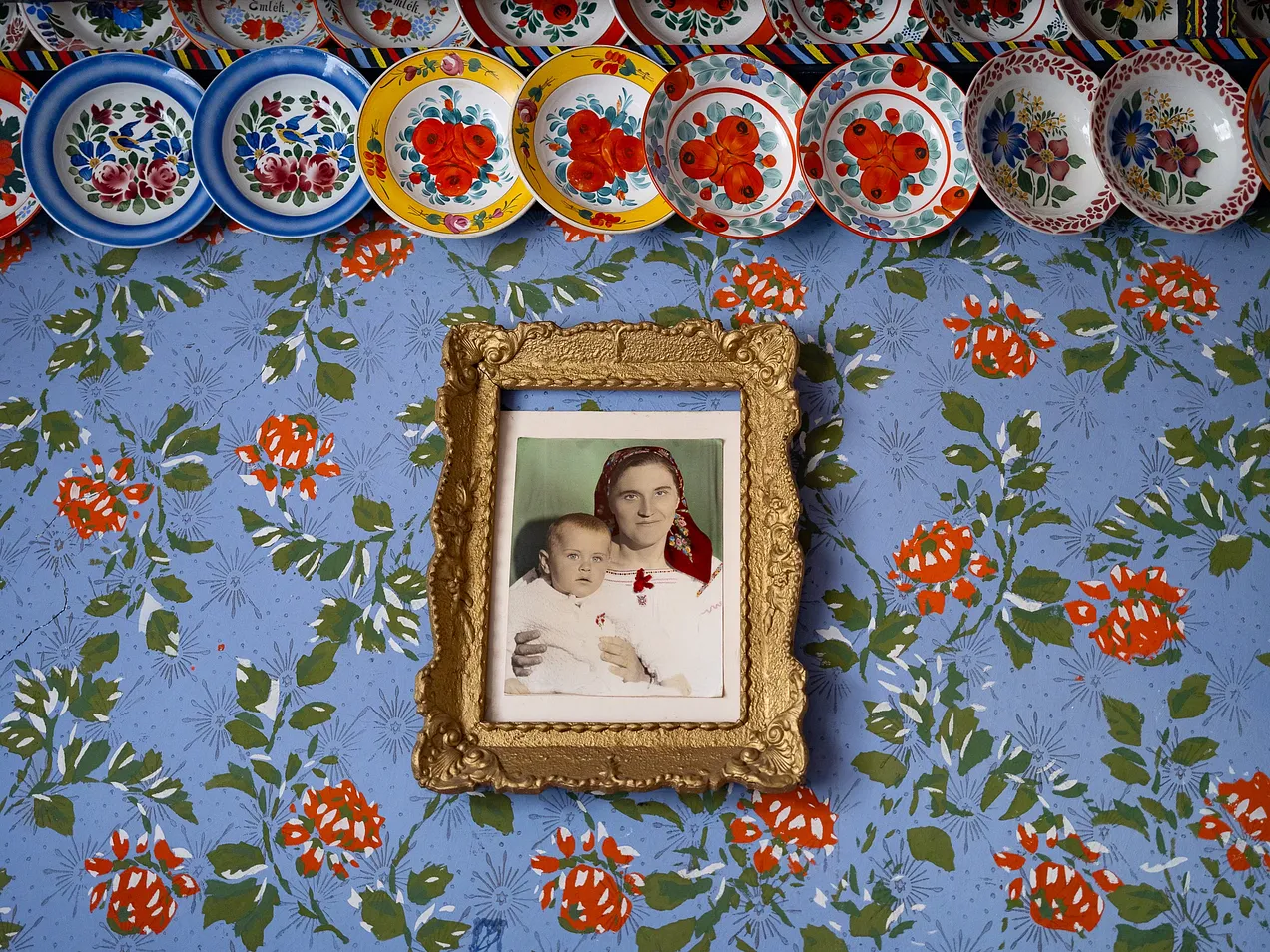
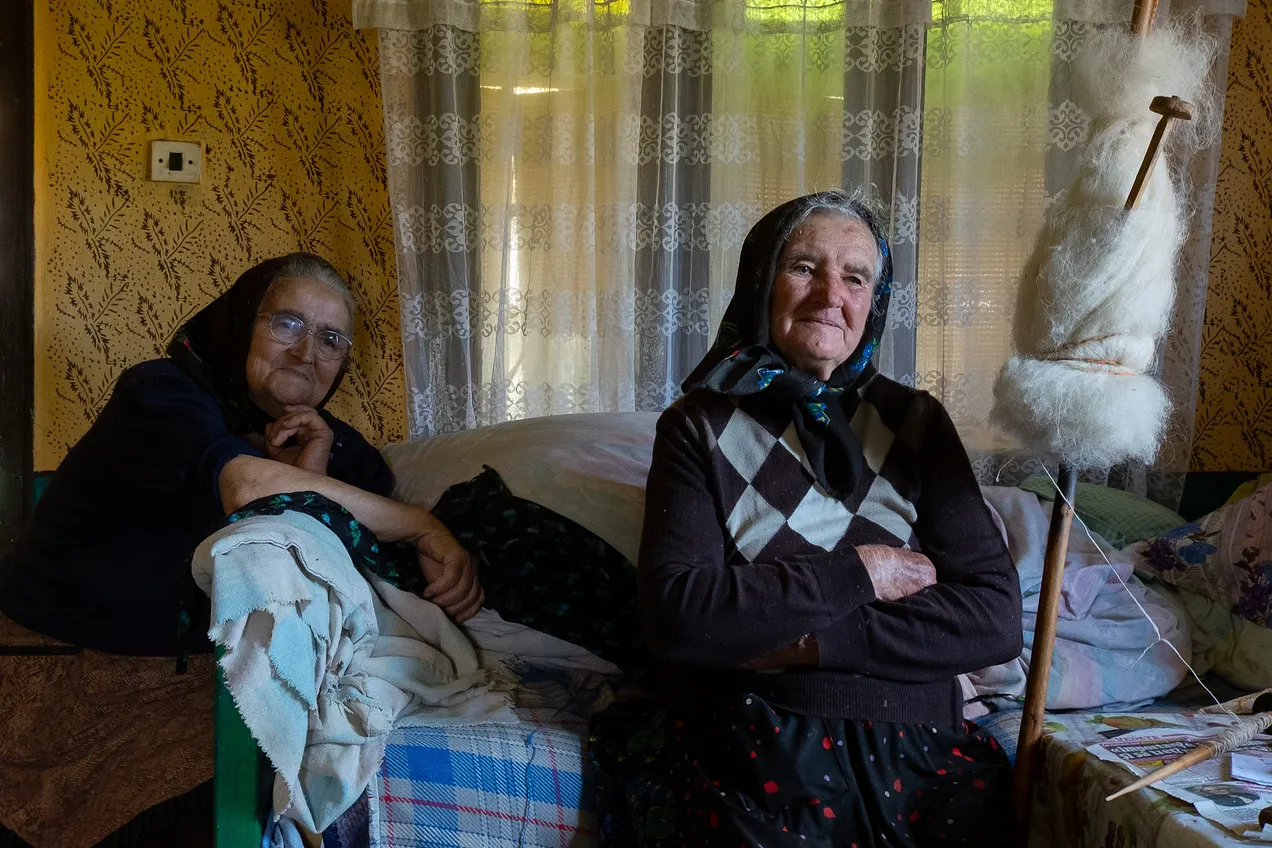
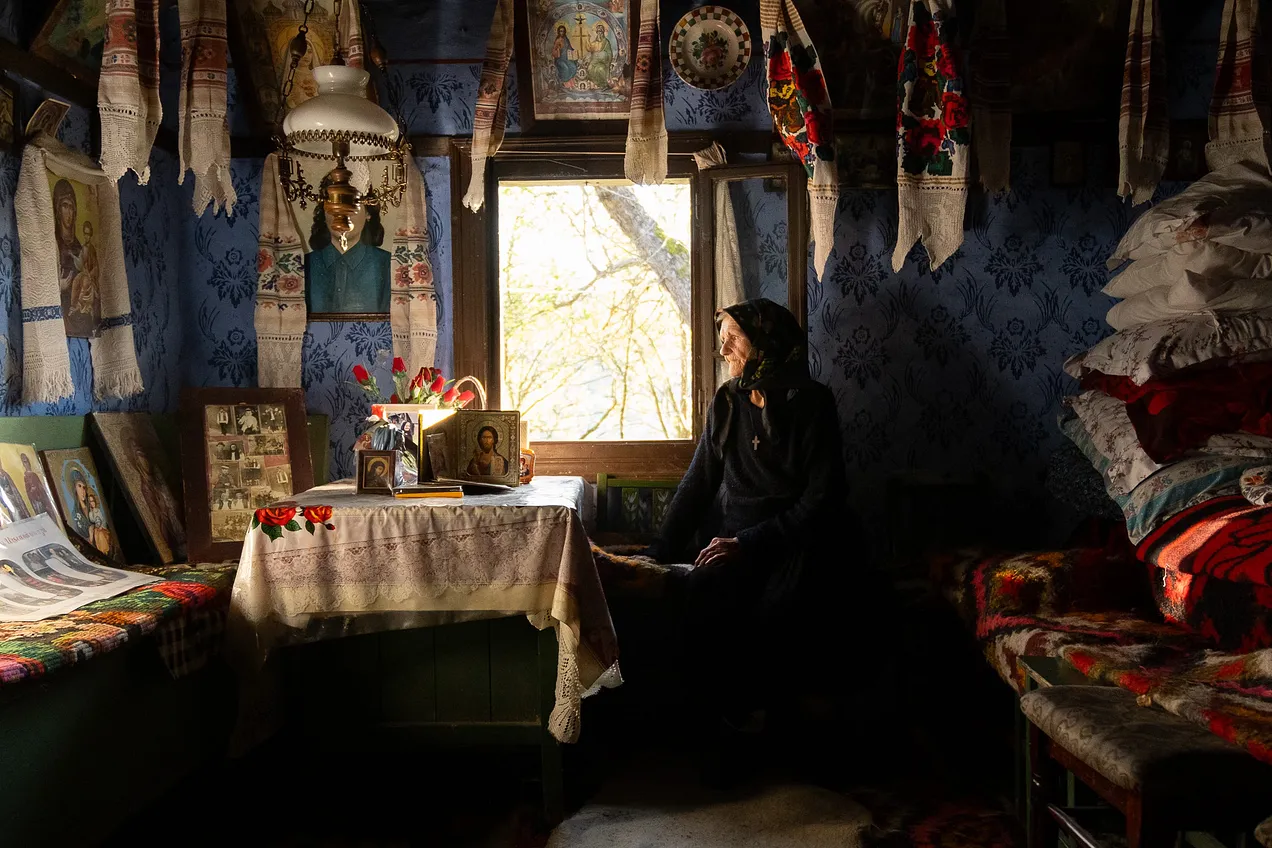
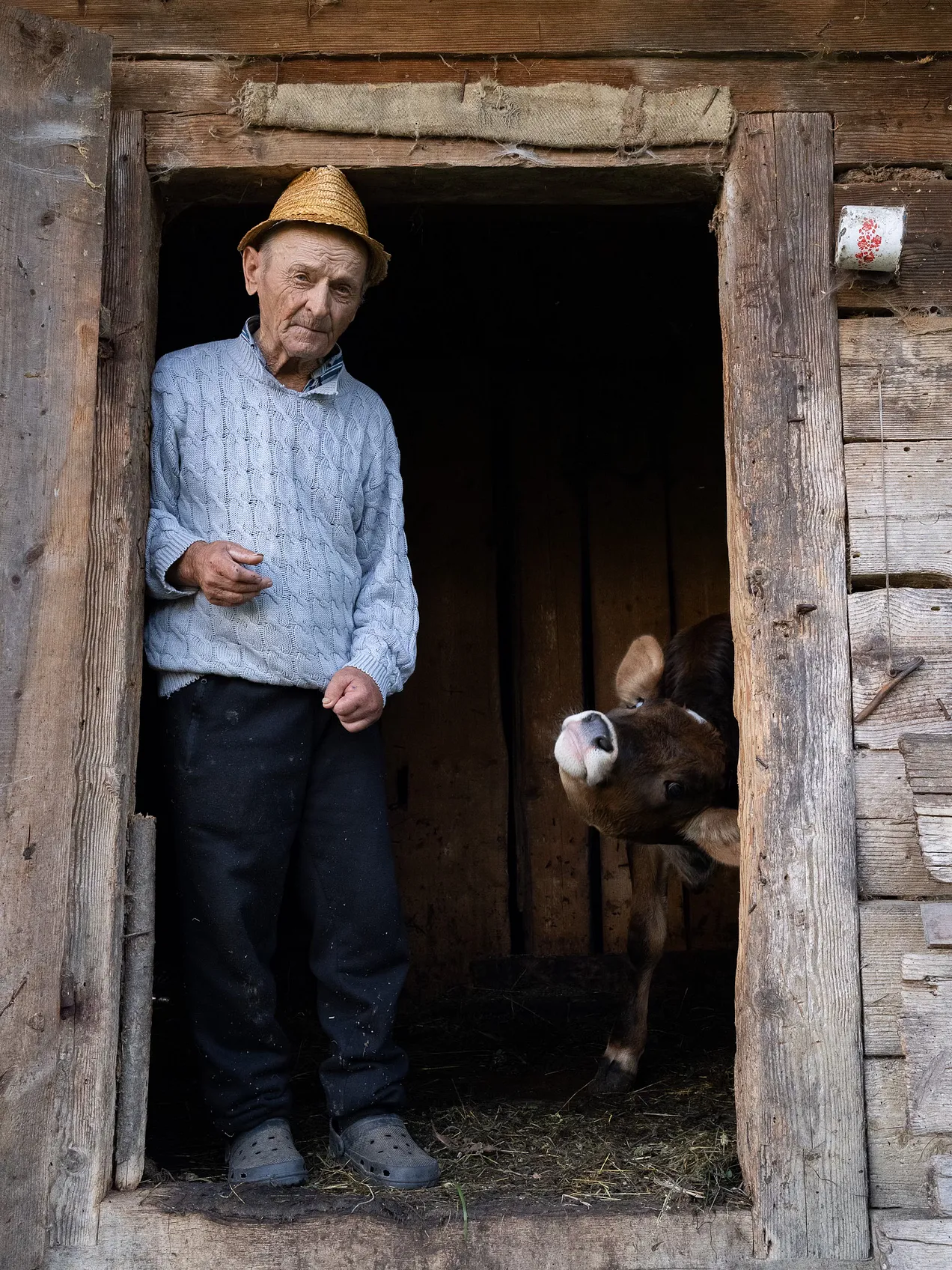
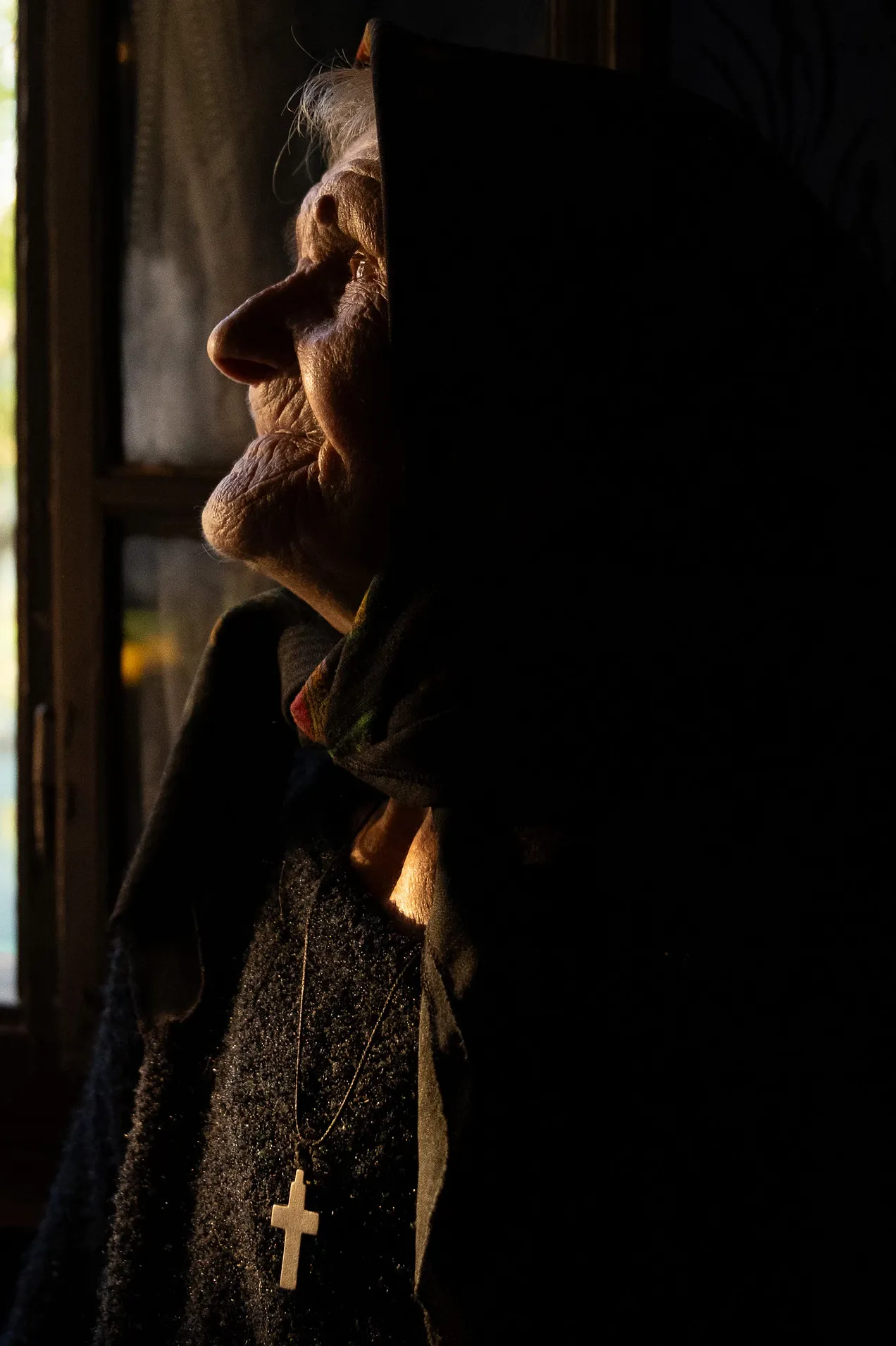
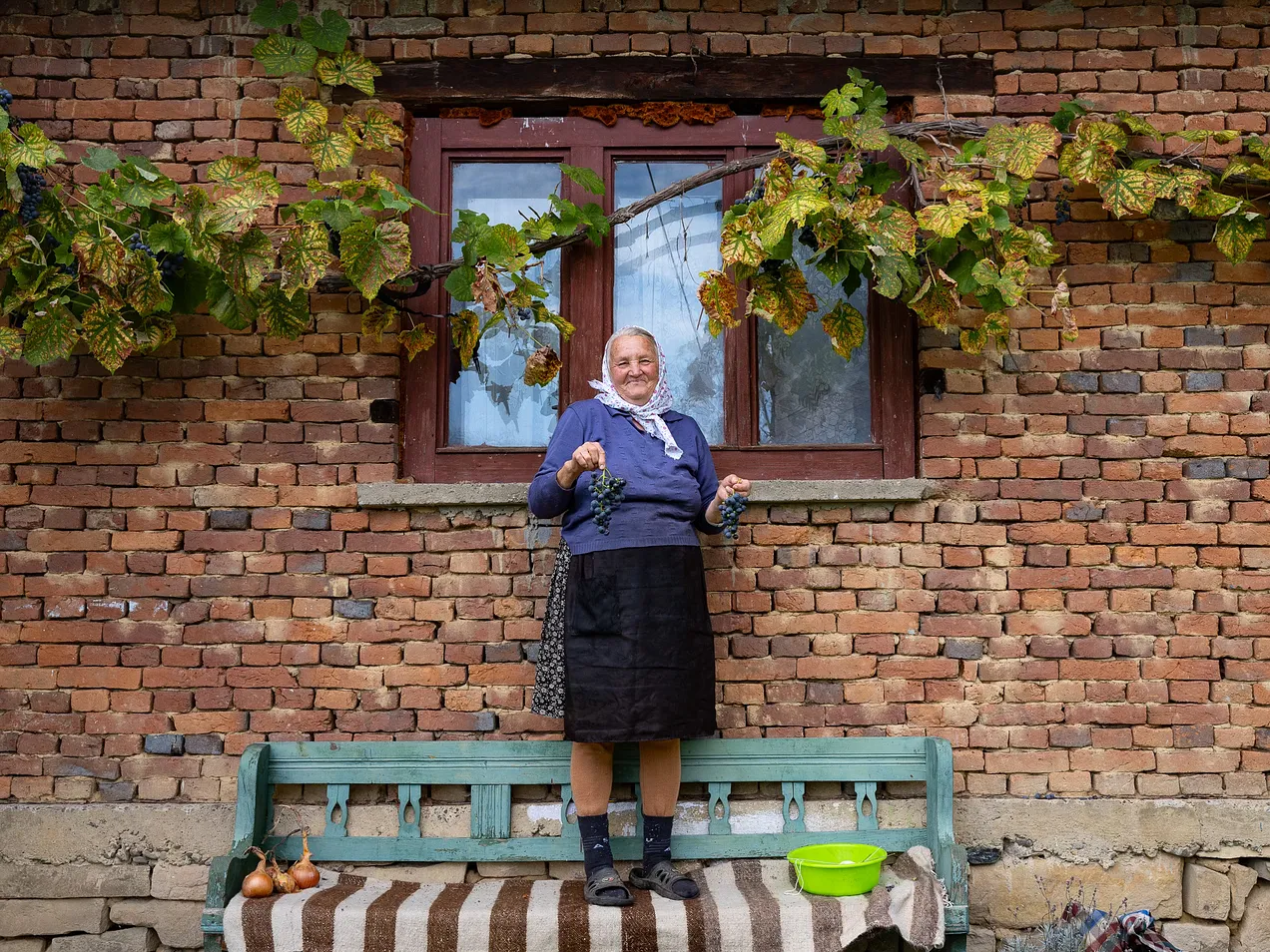
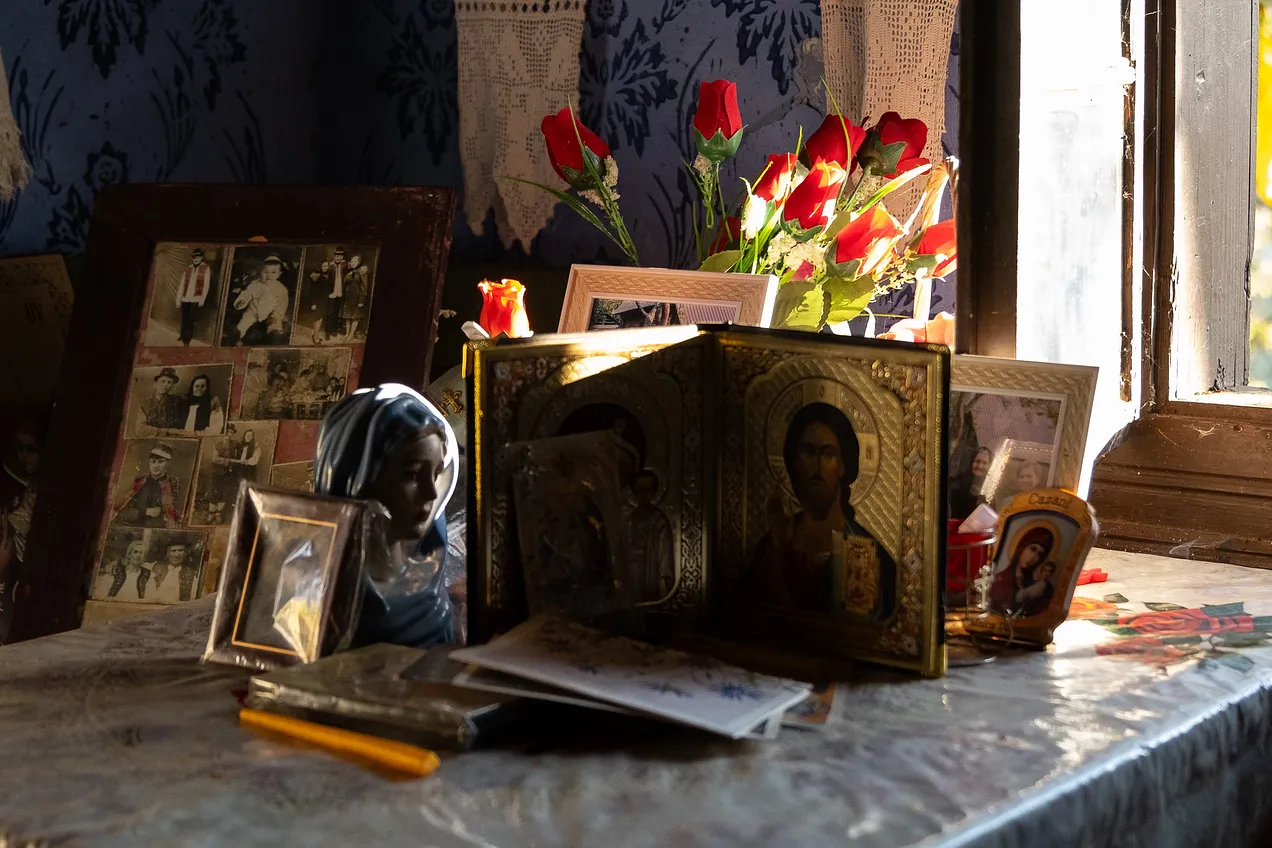
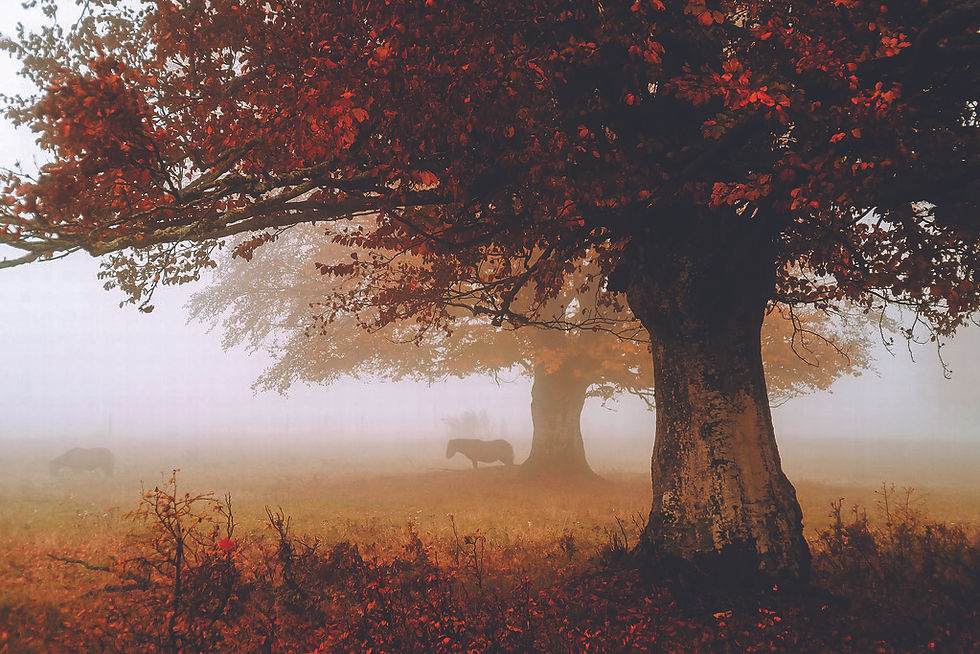


Comments